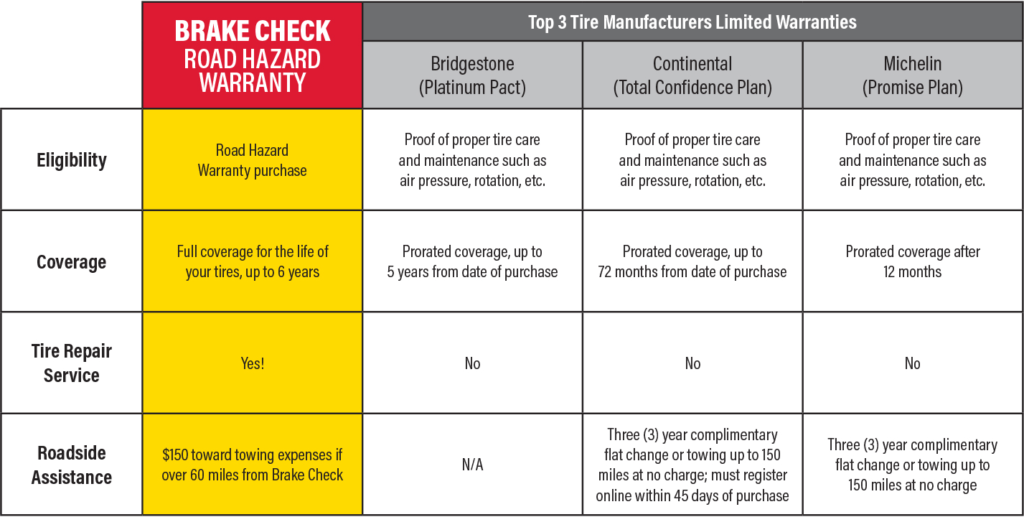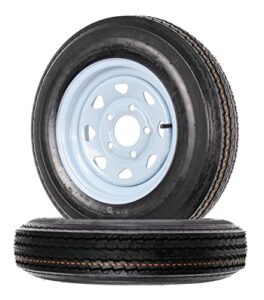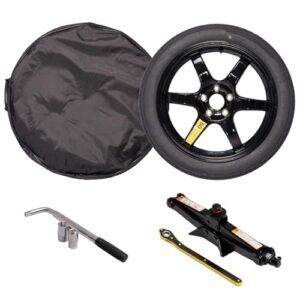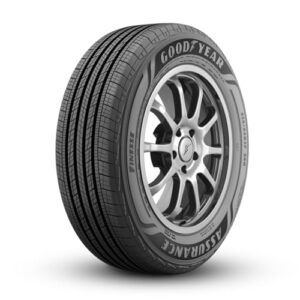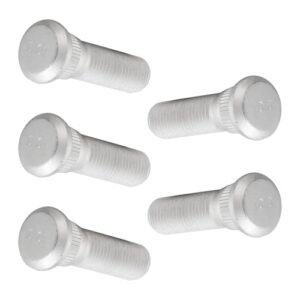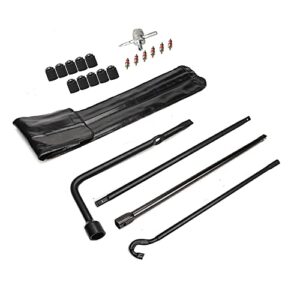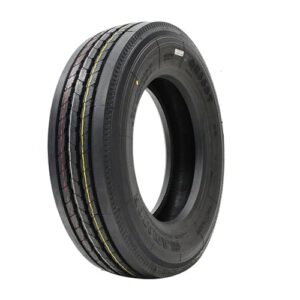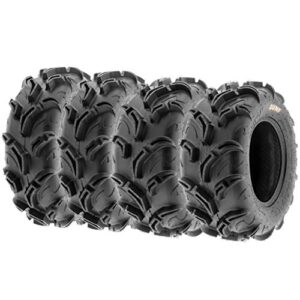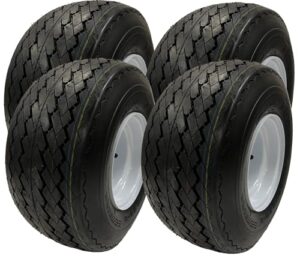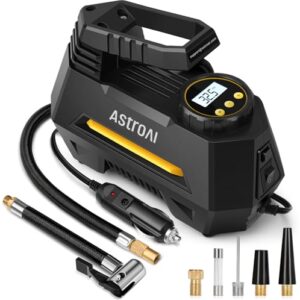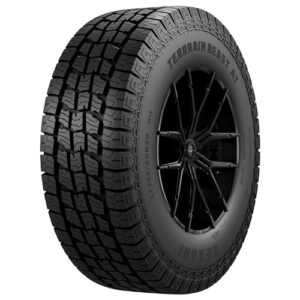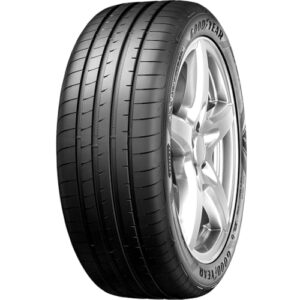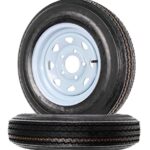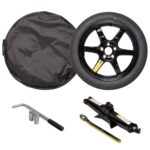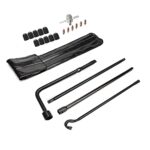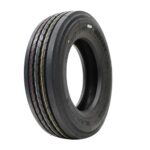To check your tire warranty, review the paperwork provided at purchase and visit the manufacturer’s website. Ensure you have your tire’s DOT number.
Tire warranties offer peace of mind and protect against defects and premature wear. Understanding your tire warranty can save you money and extend the lifespan of your tires. Most warranties cover specific durations or mileage, so knowing the details is crucial.
Locate your tire’s DOT number, typically found on the sidewall, to access warranty information. The manufacturer’s website often provides a warranty lookup tool using this number. Familiarize yourself with the terms, including what is covered and any exclusions. This knowledge helps you make informed decisions about tire maintenance and replacements.

Tire Warranty Basics
Understanding your tire warranty is crucial for your vehicle’s safety and performance. Tires are an essential part of your car, and knowing how to check their warranty can save you money and stress. This section will cover the basics of tire warranties.
What Is A Tire Warranty?
A tire warranty is a promise from the manufacturer. It guarantees the tires will last for a certain period or mileage. If your tires fail within this period, you may get a replacement or refund.
Tire warranties protect you from defects and premature wear. They ensure you get the best value for your money.
Types Of Tire Warranties
There are several types of tire warranties. Each type covers different aspects of the tire’s performance and lifespan.
| Type of Warranty | Description |
|---|---|
| Manufacturer’s Warranty | Covers defects in materials and workmanship. |
| Tread Life Warranty | Promises the tire will last a certain number of miles. |
| Road Hazard Warranty | Covers damage from potholes, nails, and other road hazards. |
| Uniformity Warranty | Covers issues with tire balance and uniformity. |
Understanding these warranties helps you choose the right tires. It also ensures you know what to expect from your tire’s performance.
- Manufacturer’s Warranty: This is the most common type. It covers defects and workmanship issues.
- Tread Life Warranty: This warranty is based on mileage. It promises the tire will last for a certain number of miles. If it doesn’t, you may get a pro-rated refund.
- Road Hazard Warranty: This warranty covers damage from road hazards like potholes and nails.
- Uniformity Warranty: This warranty covers issues with tire balance and uniformity. It ensures your ride is smooth and safe.
Finding Warranty Information
Understanding how to check your tire warranty is essential. It ensures you make the most of the benefits offered. This section will help you locate your tire warranty information.
Manufacturer’s Website
Start by visiting the manufacturer’s website. This is often the best source for accurate details. Look for a section labeled “warranty” or “support”. Manufacturers usually have a dedicated page.
Here are steps to follow:
- Go to the manufacturer’s homepage.
- Navigate to the “Warranty” section.
- Search for your tire model.
Many websites offer a search function. You can type your tire model for specific information. Some sites also provide downloadable warranty documents. These contain detailed terms and conditions.
Tire Documentation
Another place to find warranty information is in your tire documentation. This includes any paperwork received during purchase.
Common documents include:
- Purchase receipt
- Warranty booklet
- Owner’s manual
Ensure you keep these documents safe. They are crucial for warranty claims.
Check the documentation for:
- Warranty period
- Coverage details
- Exclusions
If any details are unclear, contact the seller or manufacturer directly. They can provide further assistance.
Reading The Warranty
Understanding your tire warranty is crucial. It can save you money and headaches. Let’s break down how to read it properly.
Key Terms Explained
First, know the key terms in your tire warranty. Here are some important ones:
- Limited Warranty: This covers specific issues like defects.
- Prorated Warranty: This covers part of the tire cost based on usage.
- Treadwear Warranty: This covers how long the tire tread lasts.
Coverage Period
Check the coverage period in your warranty. This tells you how long you are protected.
| Type of Warranty | Coverage Period |
|---|---|
| Limited Warranty | Usually 3-6 years |
| Prorated Warranty | Varies by usage |
| Treadwear Warranty | Based on mileage |
Always check the exact dates and conditions. This ensures you understand your protection.
Eligibility Criteria
Understanding the eligibility criteria for your tire warranty is crucial. It helps you know if you can claim a replacement or repair. Most tire warranties have specific conditions that you must meet.
Qualifying Conditions
Not all tires qualify for a warranty claim. Below are some common qualifying conditions:
- Original Purchase Receipt: Keep your receipt safe.
- Regular Maintenance: Ensure you perform routine checks.
- Proper Installation: Tires must be installed by professionals.
- Tread Depth: Tires should not be overly worn.
Exclusions
Some situations will exclude you from claiming your tire warranty. Here are common exclusions:
- Damage from Accidents: Accident-related damage is not covered.
- Improper Use: Using tires for racing excludes them.
- Neglect: Ignoring maintenance voids the warranty.
- Unauthorized Repairs: Repairs by non-certified shops exclude coverage.
Filing A Warranty Claim
Filing a warranty claim for your tires might seem daunting. But with the right steps, it can be straightforward. Here, we break down the process into simple steps. This guide will help you gather the necessary documents and follow the correct procedure.
Required Documentation
Before filing a claim, you need specific documents. These documents prove your purchase and the issue with your tires. Below is a list of required documents:
- Original purchase receipt
- Tire warranty card
- Photos of the tire damage
- Vehicle registration
- Maintenance records
Keep these documents in a safe place. Having them ready will speed up the process.
Step-by-step Process
Follow this step-by-step guide to file your tire warranty claim:
-
Locate Your Warranty
Find your tire warranty card. Check the terms and conditions. -
Inspect Your Tires
Examine your tires for damage. Take clear photos. -
Contact the Manufacturer
Call the tire manufacturer. Provide details about the issue. -
Submit Required Documents
Send all required documents to the manufacturer. -
Wait for Approval
Wait for the manufacturer to review your claim. -
Follow Up
Follow up if you don’t hear back in a week.
Following these steps ensures a smooth claim process. Keep track of your communications for future reference.
Common Warranty Issues
Understanding tire warranties can be confusing. Many car owners face issues when claiming a tire warranty. This section will discuss common problems and how to handle them.
Denial Reasons
Many claims get denied for specific reasons. Knowing these helps avoid them.
- Improper Maintenance: Regular tire checks are crucial. Neglecting this can void your warranty.
- Road Hazards: Potholes, nails, and other road hazards can damage tires. These usually aren’t covered.
- Wear and Tear: Normal tire wear over time isn’t typically covered. Excessive wear from misuse also leads to denial.
- Altered Tires: Modifying your tires or rims often voids the warranty. Keep your tires as they are.
- Lack of Proof: Always keep your purchase receipts and maintenance records. Without these, claims get denied.
How To Appeal
If your claim gets denied, don’t worry. You can appeal the decision.
- Review the Denial: Understand why your claim was denied. Check the warranty terms and conditions.
- Gather Evidence: Collect all necessary documents. This includes purchase receipts, maintenance records, and photos of the tire damage.
- Contact the Manufacturer: Reach out to the tire manufacturer. Explain your situation and provide the gathered evidence.
- Write a Formal Appeal: Draft a clear and concise appeal letter. State your case and attach all supporting documents.
- Follow Up: Stay in touch with the manufacturer. Regularly check the status of your appeal.
| Step | Description |
|---|---|
| Review the Denial | Understand the denial reasons. |
| Gather Evidence | Collect receipts and photos. |
| Contact the Manufacturer | Reach out and explain your case. |
| Write a Formal Appeal | Draft and submit your appeal letter. |
| Follow Up | Regularly check on your appeal status. |
Maintaining Warranty Validity
Maintaining your tire warranty is essential for peace of mind. A tire warranty can save you money on replacements. Ensuring your tires are well-maintained helps keep the warranty valid. Follow these steps to maintain your tire warranty validity.
Regular Inspections
Regular inspections are crucial for your tire’s health. Inspect your tires every month. Look for any signs of damage or wear. Check for punctures, cuts, and bulges. Tread depth is important too. Use a tread depth gauge to measure it. Ensure it meets the manufacturer’s recommendations.
Proper Tire Maintenance
Proper tire maintenance extends your tire’s life. Rotate your tires every 6,000 to 8,000 miles. This ensures even wear. Balance your tires regularly. This prevents uneven wear and vibrations. Wheel alignment is crucial too. Misaligned wheels cause uneven tire wear.
| Maintenance Task | Frequency |
|---|---|
| Inspect tires for damage | Every month |
| Check tread depth | Every month |
| Rotate tires | Every 6,000 – 8,000 miles |
| Balance tires | Every service visit |
| Wheel alignment | Annually or as needed |
Keep your tires properly inflated. Use a tire pressure gauge to check the pressure. Refer to your vehicle’s manual for the recommended pressure. Over-inflation and under-inflation can void your warranty. Proper inflation ensures safe driving too.
- Inspect tires monthly
- Check tread depth regularly
- Rotate and balance tires
- Ensure proper wheel alignment
- Maintain correct tire pressure
Maintaining your tire warranty is easy with regular checks. Proper care extends the life of your tires. Follow these steps for a smooth and safe ride.
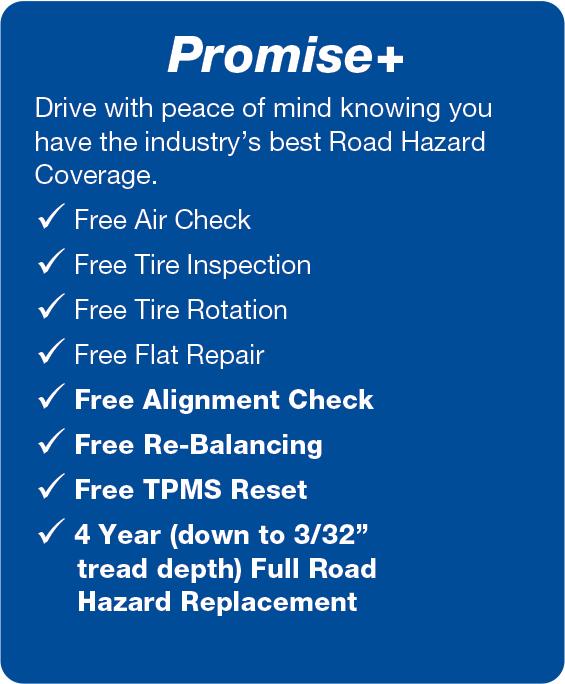
Additional Tips
Checking your tire warranty can save you headaches. Here are some additional tips to help you make the most of your tire warranty.
Choosing The Right Tires
Selecting the correct tires is crucial. Use the following points to guide you:
- Check your vehicle’s manual for tire recommendations.
- Match tire size and type with your driving needs.
- Consider the climate and road conditions in your area.
- Look for tires with good customer reviews.
Extended Warranty Options
Extended warranties provide extra peace of mind. Here’s how to assess them:
- Read the terms and conditions carefully.
- Check what is covered and what is not.
- Compare the cost of the extended warranty to potential savings.
- Consult with a trusted mechanic before purchasing.
| Aspect | Standard Warranty | Extended Warranty |
|---|---|---|
| Coverage Period | Typically 2-4 years | Up to 6 years |
| Cost | Included in tire price | Extra fee |
| Types of Damage Covered | Manufacturing defects | Includes wear and tear |
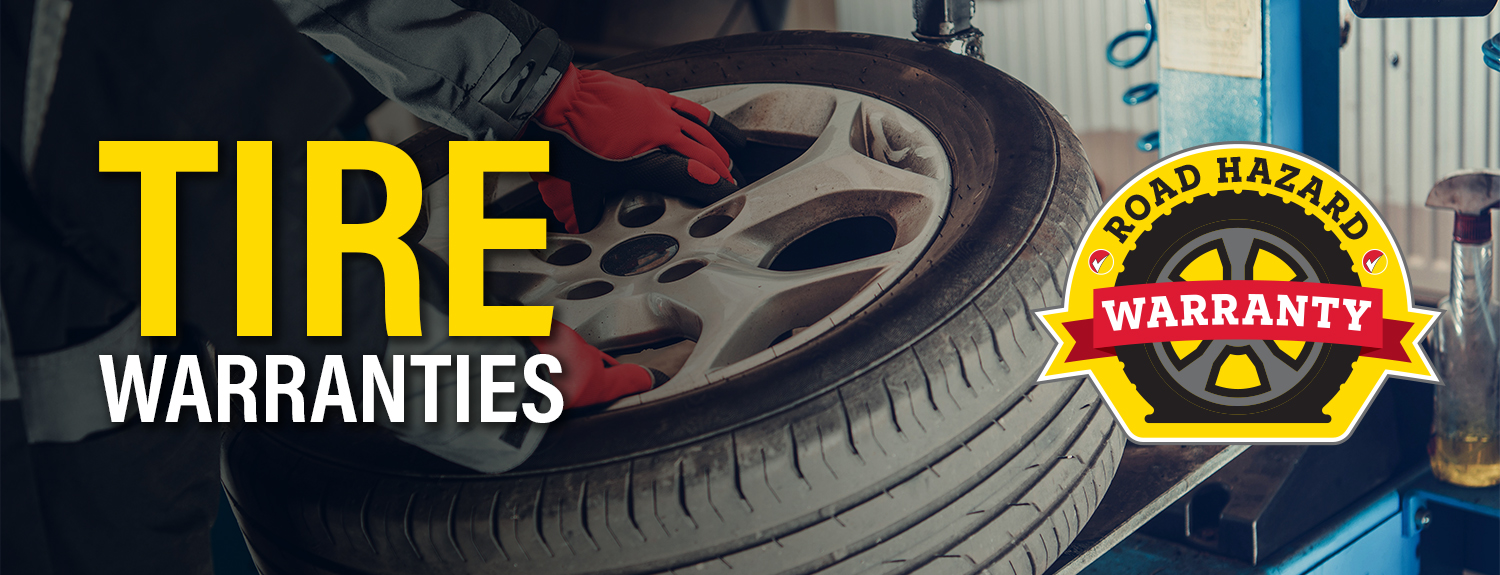
Frequently Asked Questions
How Do I Know If My Tire Is Covered Under Warranty?
Check your tire warranty by reviewing the manufacturer’s warranty policy. Examine your purchase receipt and tire documentation. Contact the retailer or manufacturer for specific coverage details. Verify if the tire issue is listed under warranty terms. Always keep your purchase records handy.
How Long Is A Typical Tire Warranty?
A typical tire warranty ranges from 40,000 to 80,000 miles. The duration depends on the tire brand and type. Always check the specific warranty details provided by the manufacturer.
Do I Need A Receipt For A Tire Warranty?
Yes, you need a receipt for a tire warranty. It serves as proof of purchase and warranty validation.
How To Claim A Tire Wear Warranty?
To claim a tire wear warranty, visit the tire retailer. Provide proof of purchase and warranty details. Ensure tires meet warranty conditions. Have the tires inspected by a professional. Follow the retailer’s process for replacement or reimbursement.
Conclusion
Ensuring your tire warranty is valid can save you money and provide peace of mind. Always check the terms and conditions carefully. Keep all purchase receipts and regularly inspect your tires. By staying informed, you can maximize your tire warranty benefits and enjoy a safer driving experience.


